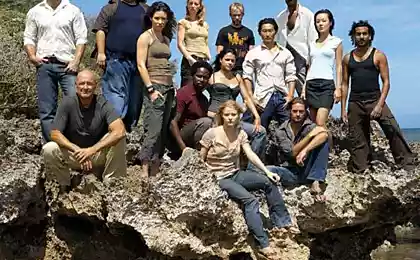122
It's all the parents' fault! You think so, too?
Relationships with parents, of course, are a very important part of the life of every person, they need to be analyzed, but if you go to extremes, nothing good will work.
The first extreme is to zealously deny the influence of the parental family in shaping us as individuals. They say that this is all nonsense, we are not such as to dig into the past, there are no family scenarios and we ourselves create fate. She wrote a lot about this extreme, it is impossible to force a person to understand himself by force, because free will.
And here's the second extreme. Which I want to talk about. It’s a years-long blaming of parents for their failures, problems in love affairs, business, money matters and more.. My parents argued, so I have such a contentious character, my parents divorced, so I can not trust partners, my parents did not behave like a “rich dad” and did not know anything about prosperity, so I do not earn money, and they also did not believe in me, so with self-esteem a complete blockage.

Undoubtedly, there is some truth in all this, which is why psychologists recommend taking a close look at your childhood, but it is necessary to do it for the purpose of liberation, not slavery.
Many of us, from the moment of immersion in the topic of parent-child relationships, become hostage to unlived negative emotions and an endless series of negative memories.
Here is how lucky: some get more problems from childhood, others less, but in any case. There is a risk of getting stuck in the role of a “child victim”, because it is very convenient to cope with the difficulties of life.. If something goes wrong, we know who to blame. There is no need to work on character, there is no need to learn to forgive, there is no need to expand the worldview to the extent that the explanation of suffering as a consequence of past actions can fit, there is no need to bother at all, because this is a simple solution: authoritarian mother, alcoholic father, weak-willed mother, aggressor father, too modest parents, hardworkers, etc.
But until what age will parents be key figures in determining the trajectory and quality of our lives? 30, 40, 50?
Accusation and condemnation imply that if we were in the place of these people (that is, having the same character, sensitivity, level of knowledge, education, money and other resources), we would behave differently. We would definitely have enough strength for love, care, support and a soft home atmosphere.
But first of all, it is impossible to understand what it is like to be a different person, because we are not them, they are not us. And second, are we charging specific people or the system as a whole?
I find this exercise useful: While reading a book about trauma, listening to lectures about relationships with parents or sitting at a reception with a psychologist, imagine yourself in the place of a father or mother, grandparents, great-grandparents. New technologies and living in peace, you know, is very different from times of information scarcity and war. With our knowledge today, it seems that if they had thought a little or taken care of themselves, they could have become more “perfect,” but if we remember our own past, we too could have acted more intelligently and compassionately towards those close to us, if we had worked a little, why not work?
Knowledge is a powerful weapon that can be used both for peace and for war, and the outcome depends on our choices. Why are surgeries done under anesthesia now, and this never happened before? Why is it possible to contact a person from anywhere in the world in a minute, and before the letter had to wait for months? Why is it that now automated manufacturing can be serviced by a few people, and before that the same volume of production required hundreds? Did they not want change in the past, did they not want all this technological progress, did they not want to learn and learn about the world? Some wanted to, others did not, some were interested in new achievements of “science and technology”, others did not, some believed in a new future, others did not. Whether it is good or bad is not important. Some 100 to 200 years from now, the latest advances in economics, business, medicine, and other fields may seem brutal and outdated.
In order not to go far, let us ask ourselves why, in today’s technologically advanced world, there are regions with a lack of education, meager incomes, slums, disease and high mortality rates. Do they not want to live better, do they not want a better future for their children, do they not read or develop? You don’t have to invent anything – everything is already there, so why do they live like this?
Maybe it’s because you don’t have the knowledge, strength and courage to change things? Or maybe you are used to this way of life, do not want to change habits or just suit everything.
It is necessary to learn from the past and give it a place in the archives of personal and collective memory, to try to live in such a way that it does not become a determining factor in our future. The history of mankind, unfortunately, is full of pain and sacrifice, and if not all of us have the opportunity to influence its course, then it certainly makes sense to try to influence our personal history.
Also interesting: Family Psychology: What Your Parents Don't Know
Stop clinging to the past!
Whether intentionally or through negligence, someone is the cause of our suffering, and someone else is the cause of us – a fact that is not always possible to change. But try not to get stuck in accusations, grow up and look at the events of the past differently. published
Credit: Deena Richards
P.S. And remember, just by changing your consciousness – together we change the world!
Join us on Facebook, VKontakte, Odnoklassniki
Source: www.facebook.com/dina.v.richards/posts/ 10154189670419452
The first extreme is to zealously deny the influence of the parental family in shaping us as individuals. They say that this is all nonsense, we are not such as to dig into the past, there are no family scenarios and we ourselves create fate. She wrote a lot about this extreme, it is impossible to force a person to understand himself by force, because free will.
And here's the second extreme. Which I want to talk about. It’s a years-long blaming of parents for their failures, problems in love affairs, business, money matters and more.. My parents argued, so I have such a contentious character, my parents divorced, so I can not trust partners, my parents did not behave like a “rich dad” and did not know anything about prosperity, so I do not earn money, and they also did not believe in me, so with self-esteem a complete blockage.

Undoubtedly, there is some truth in all this, which is why psychologists recommend taking a close look at your childhood, but it is necessary to do it for the purpose of liberation, not slavery.
Many of us, from the moment of immersion in the topic of parent-child relationships, become hostage to unlived negative emotions and an endless series of negative memories.
Here is how lucky: some get more problems from childhood, others less, but in any case. There is a risk of getting stuck in the role of a “child victim”, because it is very convenient to cope with the difficulties of life.. If something goes wrong, we know who to blame. There is no need to work on character, there is no need to learn to forgive, there is no need to expand the worldview to the extent that the explanation of suffering as a consequence of past actions can fit, there is no need to bother at all, because this is a simple solution: authoritarian mother, alcoholic father, weak-willed mother, aggressor father, too modest parents, hardworkers, etc.
But until what age will parents be key figures in determining the trajectory and quality of our lives? 30, 40, 50?
Accusation and condemnation imply that if we were in the place of these people (that is, having the same character, sensitivity, level of knowledge, education, money and other resources), we would behave differently. We would definitely have enough strength for love, care, support and a soft home atmosphere.
But first of all, it is impossible to understand what it is like to be a different person, because we are not them, they are not us. And second, are we charging specific people or the system as a whole?
I find this exercise useful: While reading a book about trauma, listening to lectures about relationships with parents or sitting at a reception with a psychologist, imagine yourself in the place of a father or mother, grandparents, great-grandparents. New technologies and living in peace, you know, is very different from times of information scarcity and war. With our knowledge today, it seems that if they had thought a little or taken care of themselves, they could have become more “perfect,” but if we remember our own past, we too could have acted more intelligently and compassionately towards those close to us, if we had worked a little, why not work?
Knowledge is a powerful weapon that can be used both for peace and for war, and the outcome depends on our choices. Why are surgeries done under anesthesia now, and this never happened before? Why is it possible to contact a person from anywhere in the world in a minute, and before the letter had to wait for months? Why is it that now automated manufacturing can be serviced by a few people, and before that the same volume of production required hundreds? Did they not want change in the past, did they not want all this technological progress, did they not want to learn and learn about the world? Some wanted to, others did not, some were interested in new achievements of “science and technology”, others did not, some believed in a new future, others did not. Whether it is good or bad is not important. Some 100 to 200 years from now, the latest advances in economics, business, medicine, and other fields may seem brutal and outdated.
In order not to go far, let us ask ourselves why, in today’s technologically advanced world, there are regions with a lack of education, meager incomes, slums, disease and high mortality rates. Do they not want to live better, do they not want a better future for their children, do they not read or develop? You don’t have to invent anything – everything is already there, so why do they live like this?
Maybe it’s because you don’t have the knowledge, strength and courage to change things? Or maybe you are used to this way of life, do not want to change habits or just suit everything.
It is necessary to learn from the past and give it a place in the archives of personal and collective memory, to try to live in such a way that it does not become a determining factor in our future. The history of mankind, unfortunately, is full of pain and sacrifice, and if not all of us have the opportunity to influence its course, then it certainly makes sense to try to influence our personal history.
Also interesting: Family Psychology: What Your Parents Don't Know
Stop clinging to the past!
Whether intentionally or through negligence, someone is the cause of our suffering, and someone else is the cause of us – a fact that is not always possible to change. But try not to get stuck in accusations, grow up and look at the events of the past differently. published
Credit: Deena Richards
P.S. And remember, just by changing your consciousness – together we change the world!
Join us on Facebook, VKontakte, Odnoklassniki
Source: www.facebook.com/dina.v.richards/posts/ 10154189670419452
Drink this water morning and evening and you will see what happens!
It is impossible to make sense of life, meaning you need to find























